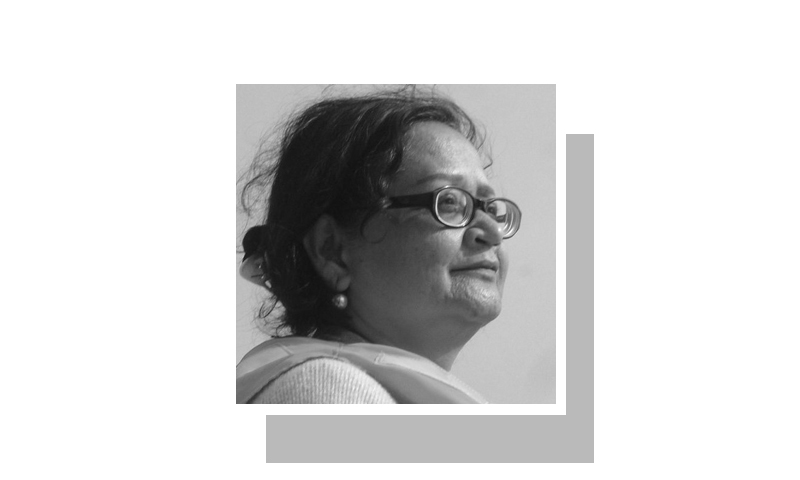IF you ask 100 women in Pakistan whether they work, 78 of them will respond that they do not – our female labour force participation rate is 22pc. If probed further on how they spend their time, they might mumble: “I cook, clean, send children to school, buy groceries, and take care of infants, toddlers and the elderly ...” The list would go on.
If the setting is rural, they might tell you that they “milk cows, clean barns, bring firewood, fetch water, cook, wash clothes, care for the family…” And on it goes. The irony is not that women themselves fail to recognise the labour they put into their families and homes, or care work, as ‘work’. The irony lies in the fact that society at large, and policymakers in particular, do not recognise the value of care work.
Fortunately, the world has now come to accept the fact that unpaid care work is a moral, social and economic issue with serious implications — for it drives gender inequity, impinges upon human rights and obstructs the overall development and growth of society.
Almost 75pc of global unpaid work is performed by women, which is estimated to constitute 16pc of the global GDP in value. Another recent study of six countries estimates that the value of unpaid care work, when applied at the minimum wage rate, is between 20pc to 40pc of the countries’ GDPs. According to a 2015 McKinsey Global Institute report, unpaid care work performed by women globally is worth around $10 trillion a year. Where does this $10tr go annually? Well, it is pocketed by governments — both in developed and developing countries — the elites and the people who own offshore companies, ie rich and powerful men.
The state must recognise the unpaid labour of women.
Tax policies that discriminate against low-income groups (in which women are over-represented) — favouring higher-income individuals, landed owners and corporations, relying on indirect taxing, and cutting social security benefits, public services and infrastructure development — lead to disproportionate amounts of unpaid care work performed by women. The opportunity cost paid by women for unpaid care work is immense and its implications profound in developing countries such as Pakistan. Unpaid care work obstructs women’s access to equal opportunities in education, healthcare and skill development. Due to their work loads, they cannot participate in decision-making or public and cultural activities. Women end up in low-paid, insecure jobs — and the vicious cycle of gender inequality is perpetuated.
As money dominates the global value system and unpaid care work is not ascribed its proper value, it is neither recognised nor valued and caregivers (ie women) are not respected. Ascribing monetary value to the chores, considered inferior and beneath the dignity of men in our society, is unthinkable for those who prescribe ‘light beating’ meted out to caregivers. They need not be alarmed; women of the world, least of all in Pakistan, are not asking to monetise unpaid care work.
Since the issue of unpaid care work was tabled at the Copenhagen World Summit for Social Development and the Beijing World Conference on Women in 1995 – when the question of why unpaid care work could not be included in the System of National Accounts standardised by the UN first arose to prominence — the debate on unpaid care work has slowly gained momentum. Political economists and sociologists have proposed theories, suggested different frameworks, explored linkages between market and non-market activities, and come up with definitions, tools and techniques of measuring unpaid care work.
From 2000 onward, a number of developed and developing countries have started using time-use surveys to measure the value of unpaid care work and its share in the country’s GDP. A real breakthrough in this debate came when in 2008 British economist and sociologist, Diane Elson, suggested ‘the 3 Rs’ — recognise, reduce and redistribute — framework to address issues of unpaid care work. Another milestone has been the UN’s Special Report on Extreme Poverty 2013, which positions unpaid care work as a major human rights issue and notes that “failure of states to adequately provide, fund, support and regulate care contradicts their human rights obligations.”
The state stands indicted of this issue and has a central role to play in its remedy. Our government needs to recognise unpaid work. The Federal Bureau of Statistics can introduce time-use surveys to measure care work. Burden on women can be reduced through investments in infrastructure with revenue generated from tax reforms. It is sad that, instead of increasing direct taxes, policymakers have reduced corporate tax by 30pc in the 2016-17 budget.
Pakistan’s current tax-to-GDP ratio, at 11.5pc, is very low; it must be raised to 20pc through direct taxes, inclusive of agriculture. Finally, unpaid work can be redistributed through investment in public services — including free universal education, healthcare, access to water and sanitation — and by adopting social protection measures and complying with ILO labour standards.
The writer is associated with PILER.
Published in Dawn, June 22nd , 2016












































